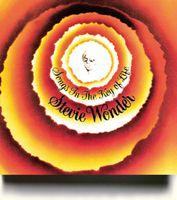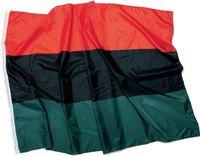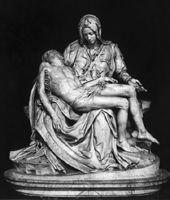Decoded (49 page)
Authors: Jay-Z
Tags: #Rap & Hip Hop, #Rap musicians, #Rap musicians - United States, #Cultural Heritage, #Jay-Z, #Entertainment & Performing Arts, #United States, #Music, #Rich & Famous, #Biography & Autobiography, #Genres & Styles, #Composers & Musicians, #Biography

5.
This was a fantasy: What would happen if the situation was reversed and Bush was on the ground, surrounded by the folks of the Ninth Ward, as beautiful and fragile as orchids? And how fast would they have gotten him out?

6.
Giving money is important, I think, but the people who got down there to help and put their feet in that water were heroic.
7.
I repeat this line because it has two meanings. The first time it refers to the money that I donated: I can’t say that the money has made anything better. The second time, I’m referring to even further “before,” to life before the Civil Rights Movement.
DYNASTY (INTRO)
1.
“Woke up this morning / got yourself a gun …”
2.
The opening of the song establishes the feeling that a lot of us had: We didn’t worship the Mafia like a lot of people thought, but we completely related to the “us vs. the establishment” mentality. That was the “key of life” for us, the thing that united us, even when we weren’t in perfect harmony.
3.
Stevie Wonder connects back to the “key of life” metaphor. He famously wore beads—and “beeds” are also what folks used to call nappy hair. My mom used to call them “biddy beeds” and rub my head, which I sometimes covered with a wave cap, also called a do-rag. I’m trying to create a parallel between me and Stevie Wonder. He’s blind, obviously, and relies on his other senses to navigate the world. That’s how it is on the streets, too, where you have to rely on your instincts to survive and anticipate what’s going to happen before you actually see it.

4.
“Ennis Cosby, Bill Cosby’s only son and an inspiration for some of the comedian’s most rollicking television humor and family antics, was shot to death early Thursday after he pulled over to the side of a Los Angeles freeway to change a flat tire.” —
The New York Times,
January 19, 1997.
5.
Ennis was the kind of kid that a lot of us were envious of: He came from a fortune and seemed to have it all, including his dad, Bill Cosby—the ultimate American dad—while most of us came up with nothing and had never even met our fathers, much less lived with them. (I’m not sure if I was lucky or not to have gotten the chance to know my dad before he bounced.) But Ennis’s death was one of those things that sharpens your sight (which continues the blindness/sight metaphor I introduced with Stevie Wonder). It reminded us of life’s frailty even for people with money and status. Money can’t protect you from fate.
6.
Here I’m outside hustling, sometimes in freezing-cold weather. “Below zero” refers to my money situation as well—I’m not starving literally, but I’m hungry for success. I’m willing to do whatever to improve my situation, with no sympathy for anyone else—a survival-of-the-fittest mentality takes over, “darkens my heart.” The stress might drive me to drink, too—“’bout to get my liver.”
7.
Another reference to Malcolm X’s by any means necessary—a phrase he coined to talk about political revolution and racial liberation—which is used in hip-hop as a description of getting paid by any means when your back is against the wall. We knew Malcolm was a righteous man fighting for a just cause. But we were a step beyond him in our desperation.
8.
From time to time people with sense would tell us to leave “the life” alone, that there was a better way. At this point I’m becoming cynical and “suspicious” of anybody saying anything other than what I can see in front of me. So like Malcolm I was going to get it by any means and protect myself with “biscuits,” a word we used for guns, I don’t even know why. Now all of this—contradictions included—is to be ingested by the listener. I left a mess of thoughts for you to sort through. I prepared the “food”; it’s up to you to clean it up.
MY PRESIDENT IS BLACK (REMIX)
1.
Progress is the theme of this song, but the cool thing is that I’m not president, so I could have a completely politically incorrect chorus.
2.
“My least favorite color is light green” is a line from one of my songs, meaning, I don’t like my money to get light, in the sense of being scarce. So “dark green” money isn’t a reference to the color, but the amount, of the money.
3.
This is a joke, but it’s true, too: Even though he identifies himself as black, the fact that he is also half white would make it easier to a racist, which I find very funny.
4.
This was a little poem that was spread through e-mails during the election.
5.
After Barack was elected, I realized that the same thing hip-hop had been doing for years with language and brands—that is, reinventing them to mean something different from what they originally meant—we could now do to American icons like the flag. Things that had once symbolized slavery, oppression, militarism, and hypocrisy might now begin to legitimately represent us. We’re not there yet, but Barack’s election offered a tantalizing hint of what that might look like, including things like having the American “first lady” be a beautiful black woman who could trace her ancestry to American slaves.

6.
By “white lies” I didn’t mean race—I was referring to the deceptions, large and small, of the previous administration. The point of the song is that we were progressing beyond simplistic talk about race and could start being honest about it so that we could, eventually, move on.
REGRETS
1.
This is the last song on my first album,
Reasonable Doubt.
The album as a whole was like a conversation I was having with the listener about real feelings and emotions. The album went from the highs of the hustler’s life in songs like “Feelin It” to the paranoid depths of “D’Evils.” I wanted to end it with regret, that last feeling you have before you go to sleep, or feel when you wake up and look at yourself in the bathroom mirror.

2.
This is something I do in a lot of my songs—I introduce the narrator with a declaration that lets you know who he is: In this case, he’s obviously a boss, someone who “sold it all” and is speaking from that experience.
3.
“In third person” means that I’m at least one person away from the actual transaction, which is, again, the way a boss would handle his business.
4.
I’m teaching my people how to “g ’em,” which was slang back in the day for game. All this means is that I’ve trained my people how to handle the negotiation.
5.
This shows how thorough a boss the narrator is, and how thorough his worker is: I gave him the play before it happened, and now I’m watching the play from a BMW parked some distance away.
6.
The metamorphosis happens when you exchange one product for another, the drugs for the money.
7.
The narrator sees the buyer’s eyes and they’re like a Korean’s—which is some ignorant shit, I’ll admit—but the point is that to him they’re hard to read, which makes him anxious, because something about the buyer is shut off. The eyes are the window to the soul, and his windows are closed.
8.
Now I know something’s up, and I’m hoping my people figured it out, too.
9.
“Chink” refers back to the hard-to-read buyer (I told you it was ignorant) and now it’s clear that the plan was to bag my worker, the link that connects me to the transaction.
10.
I bailed out, like Time Warner bailed out of hip-hop when it sold Interscope under pressure. I’m hoping to get a call from his family to tell me he’s okay, not that he died in a shootout with cops.
11.
The emotion here is guilt, regret. I put him in the situation, I told him what to do. I showed him how to do it, and I watched it go down. And there was nothing I could do about it. Run down there and try to grab him? Then we’re all locked up. So I had to leave. The guilt of leaving, the guilt of putting him in that situation and then not knowing what happened—it was just driving me crazy. I’ve seen situations like that in real life, and while I can paint a picture of it, the feeling itself is impossible to describe.
12.
We’re on to a second narrative. Once again I try to quickly define the character in the first line: He’s a young hustler trying to figure out life.
13.
When I started hustling, my mother knew I’d moved out, of course, and when I did come home it would be for a weekend at most, and I’d show up wearing a gold cable that weighed thirty-six ounces and real diamond studs in my ear, gold-plated fronts in my mouth. She never talked to me about it; she believed in letting her children make their own mistakes, plus what could she say?

Other books
Deeper by Robin York
Lethal Lily (A Peggy Lee Garden Mystery) by joyce Lavene, Jim Lavene
Highlander Most Wanted by Maya Banks
Options Are Good by Jerry D. Young
Ashes to Ashes by Tami Hoag
Hadassah Covenant, The by Tommy Tenney, Tommy, Mark A
While They Slept: An Inquiry Into the Murder of a Family by Kathryn Harrison
What Does Blue Feel Like? by Jessica Davidson
A Mutiny in Time by James Dashner
Jackpot! by Pilossoph, Jackie